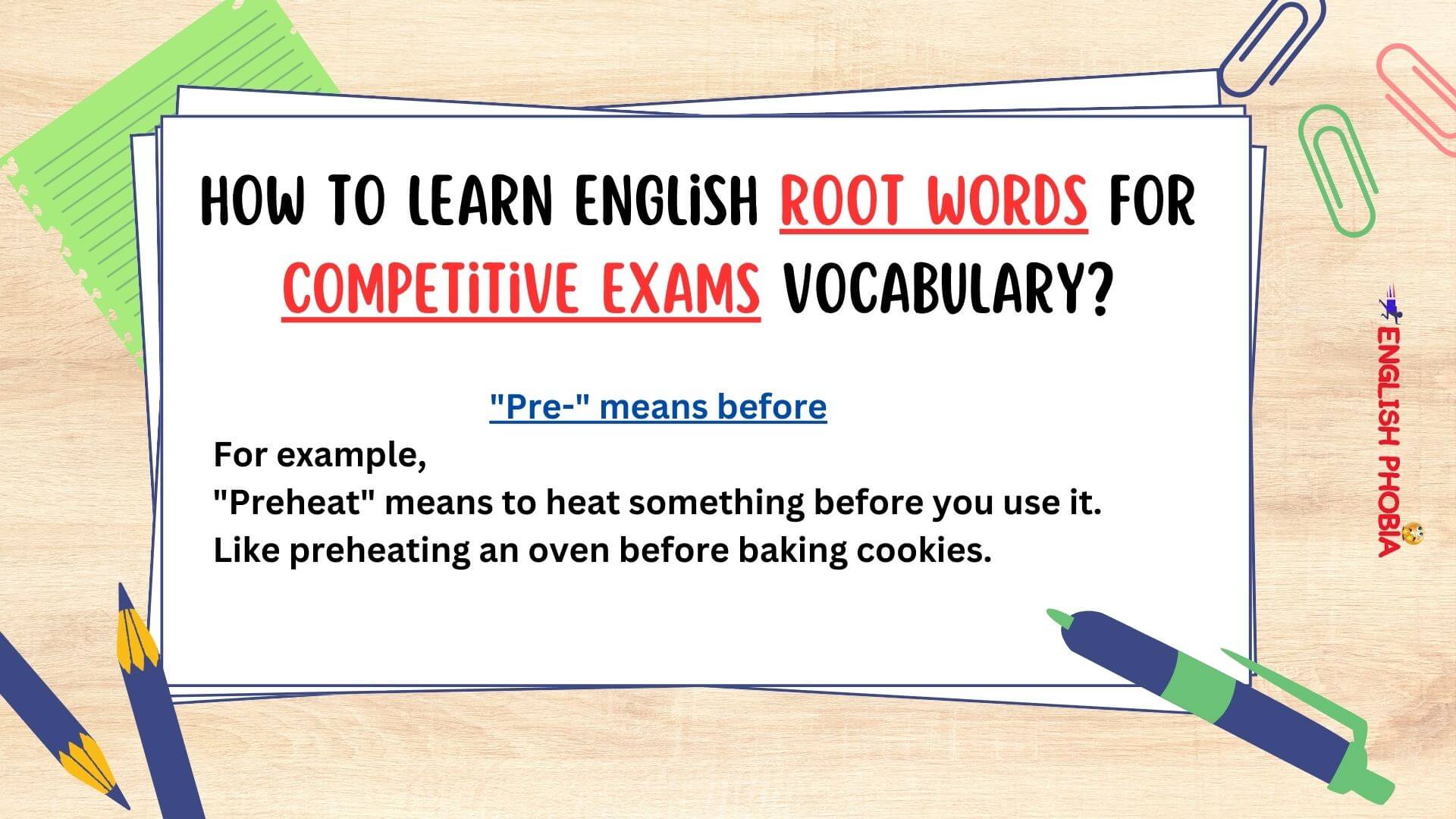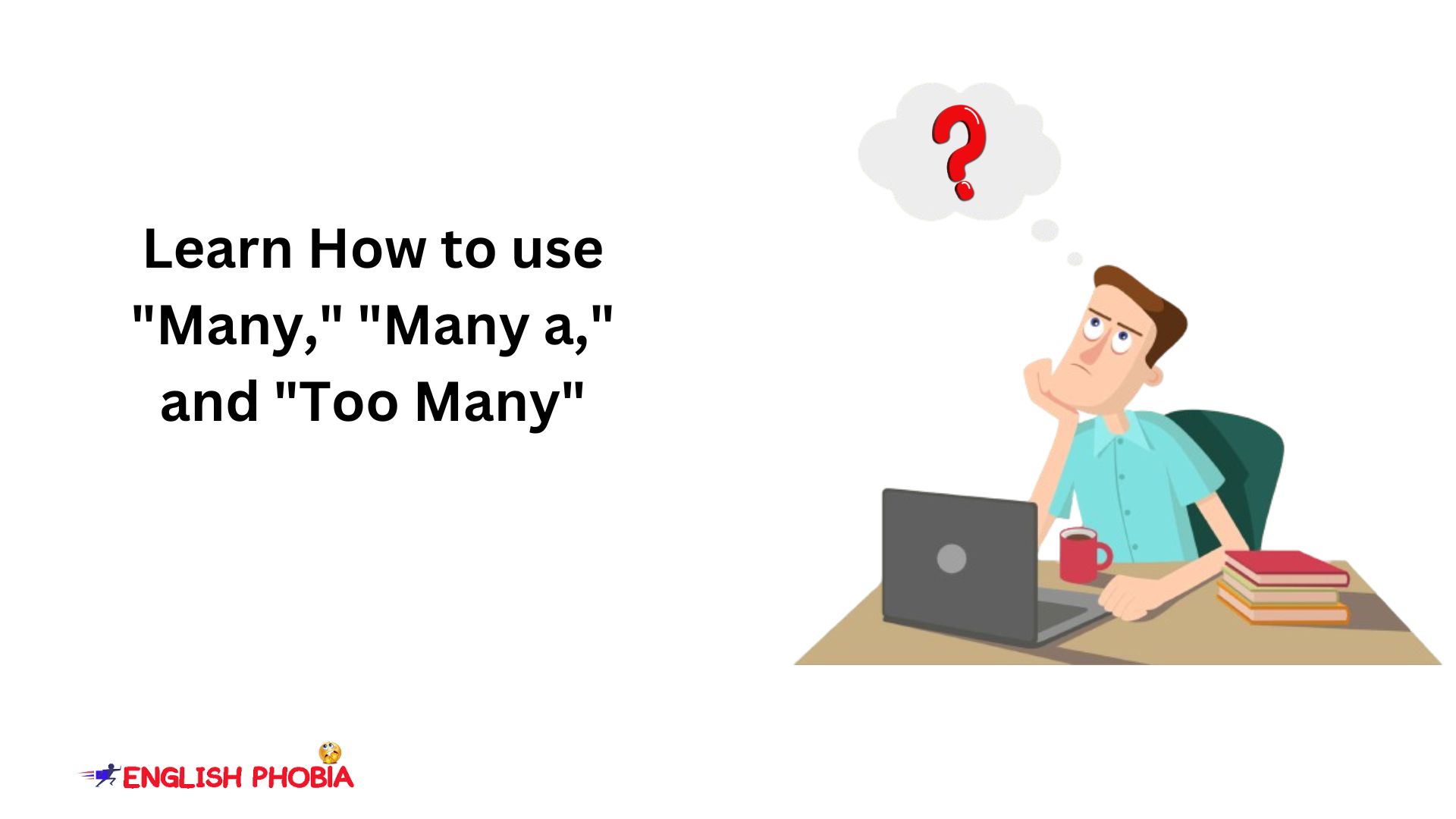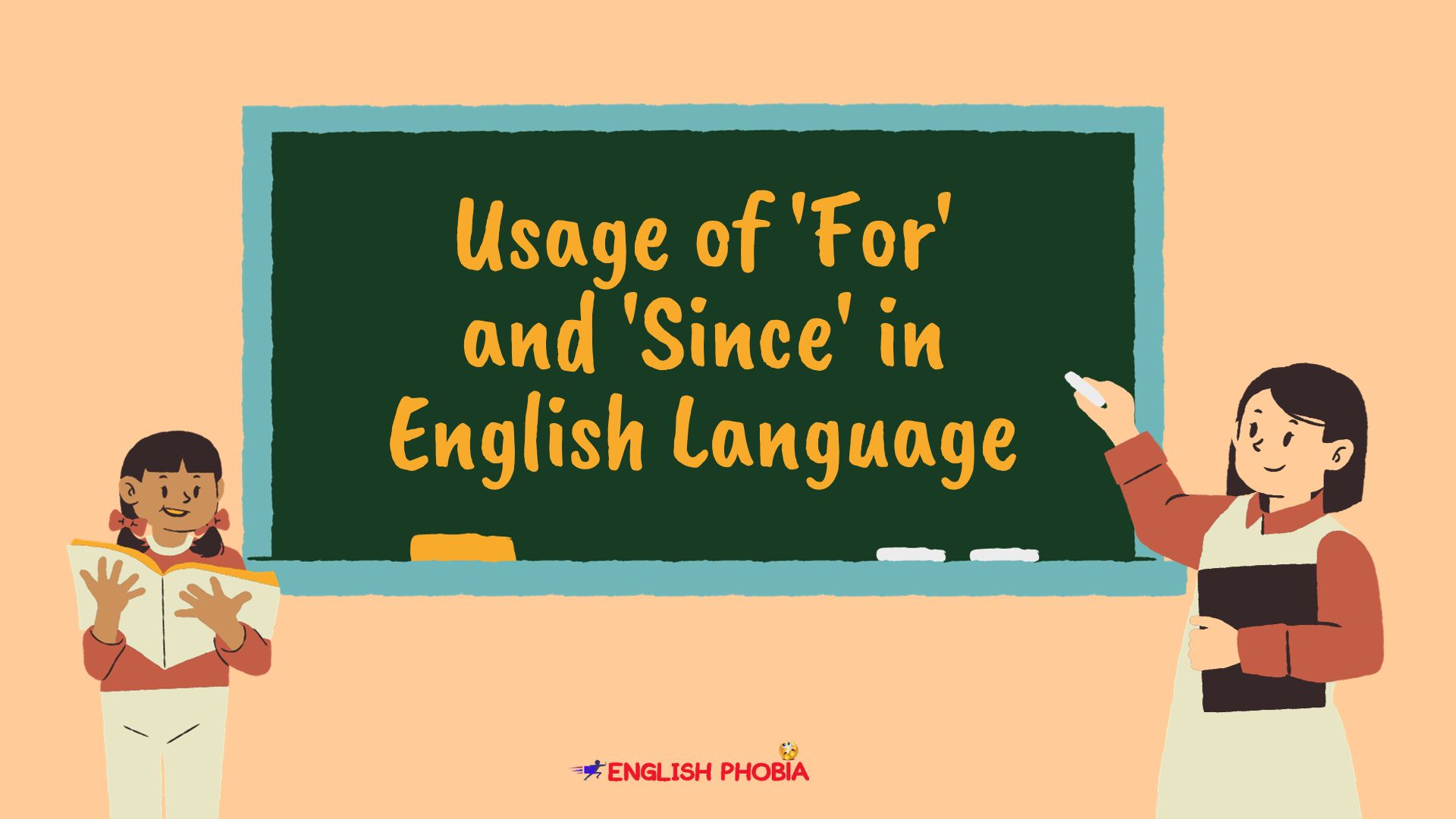Learning English for competitive exams is a powerful skill. But are you tired of learning English vocabulary? You are an aspirant of competitive exams and vocabulary is a barrier in your way to success.
Stop memorizing words now! Here is a new key to keep all the words at your fingertips in one go. The key? Understanding how to learn English root words will lessen your burden.
What are English Root Words?
Root words are the basic building blocks of words in the English language. They are the main part of a word that carries its core meaning. When you add prefixes or suffixes to root words, they can change or improve the meaning of the word.
For example,
1) The root word “act” means to do something.
When we add the prefix “re-” to it, it becomes “react,” which means to act again or respond.
2) The root word “play.”
When we add the suffix “-er” to it, it becomes “player,” which means someone who plays.
3) The root word “happy” means feeling good.
If we add the prefix “un-” to it, it becomes “unhappy,” which means not feeling good or sad.
What is root word method?
Root words help us understand the meaning of different words and how they relate to each other. The root word method is a way to understand the meaning of words by looking at their roots or base forms. We see many words in English on a regular basis. They come from ancient languages like Latin or Greek. These roots give us clues about what the word means.
If we know root word vocabulary, we can easily learn new words. It is like solving a little word puzzle!
This method can help you understand the meanings of many words, but not all. But it is still a great tool to have in your vocabulary toolbox.
How can I learn vocabulary with root words?
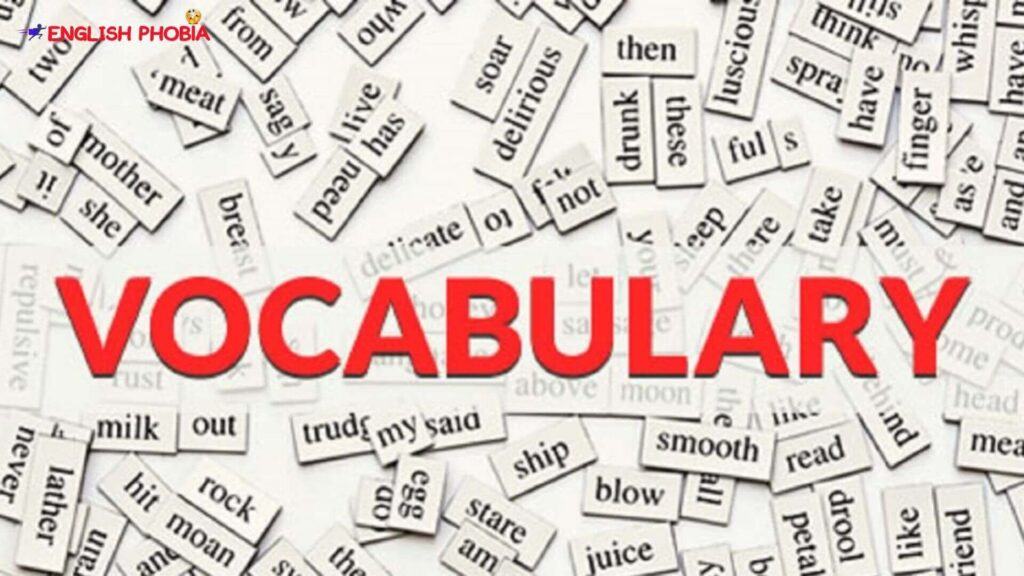
Root words are the main words that give meaning to other words. They are like the building blocks of words. When you understand root words, you can learn and remember new words easily.
What are common root words?
Here is a list of some common root words useful for competitive exams.
English Vocabulary Root Words
We can categorize the root words in 8 parts to understand them easily.
1) Prefix roots
2) Numeric roots
3) Body parts and organs
4) Nature and elements
5) Time and chronology
6) Emotions and Psychology
7) Language and Communication:
8) Suffix roots
What are Prefixes meaning and examples
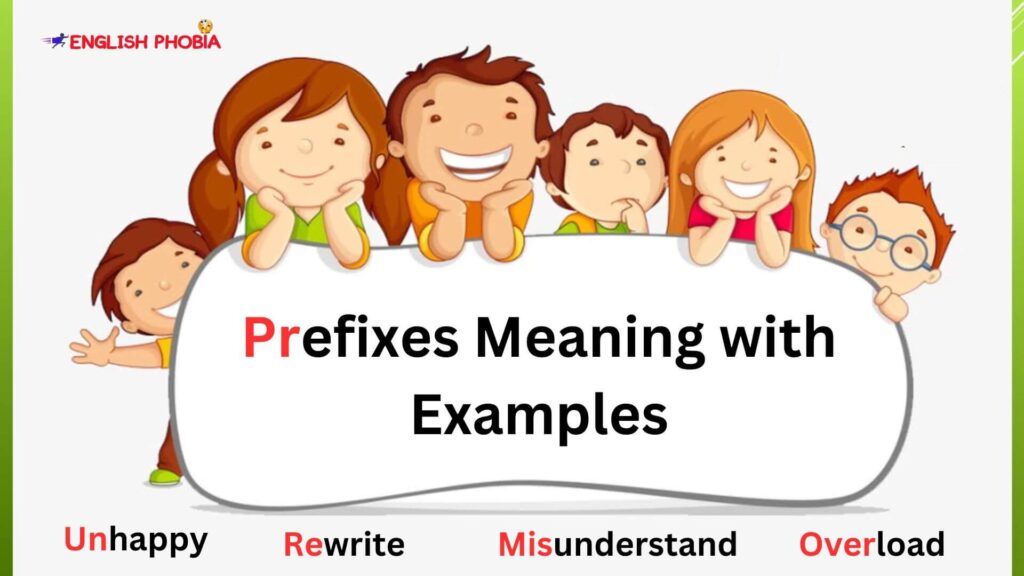
Prefixes are small groups of letters that we add to the beginning of a word to change its meaning. They help us create new words and make our language more interesting.
For example,
“Happy” means to feel joyful or pleased. Now, if we add the prefix “un-” before “happy,” it becomes “unhappy” and changes the meaning to the opposite.
Here are a few more examples of prefixes and how they change the meaning of words:
1) “Pre-” means before.
For example,
“Preheat” means to heat something before you use it.
Like preheating an oven before baking cookies.
2) “Mis-” means wrongly.
For example,
“Misunderstand” means to not understand something correctly.
3) “Dis-” means not or opposite. If you add it to a word, it changes the meaning to the opposite.
For example, “dislike” means not liking something.
If we add different prefixes, we can create many new words and give them different meanings. It is like adding a special ingredient to a recipe that changes the taste of the dish.
1) Numeric Roots:
We use these roots to show numbers or quantities.
For example,
“Mono-” (meaning one)
1) Monocle – A single eyeglass, often used for reading.
2) Monochrome – Using only one color or shades of one color.
3) Monopoly – Exclusive control by one group or individual.
4) Monogamy – The practice of having only one spouse at a time.
“Bi-” (meaning two)
1) Biennial – Occurs every two years.
2) Bicycle – A vehicle with two wheels.
3) Binary – Relating to or using a system of two.
4) Bisect – To divide into two equal parts.
“Tri-” (meaning three)
1) Triangle – A shape with three sides and three angles.
2) Tricycle – A vehicle with three wheels.
3) Trifecta – A bet on the first three winners in a race.
4) Trilateral – Involving three parties or sides.
5) Trimester – A period of three months.
“Quad-” (meaning four)
1) Quadrillion – A number equal to a thousand raised to the fourth power.
2) Quadruplet – A group of four siblings born at the same time.
3) Quadriceps – A muscle at the front of the thigh consisting of four parts.
4) Quadrant – A quarter of a circle or plane.
2) Body Parts and Organs:
We use these roots for anatomical terms.
“Derm-” (related to skin)
1) Dermatologist – A medical professional specializing in skin disorders.
2) Epidermis – The outer layer of the skin.
3) Dermatitis – Inflammation of the skin.
4) Hypodermic – Relating to the area under the skin.
“Cardio-” (related to hearts)
1) Cardiovascular – Relating to the heart and blood vessels.
2) Cardiologist – A medical professional specializing in heart diseases.
3) Cardiogram – A record of the electrical activity of the heart.
4) Cardiac – Relating to the heart.
“Hepat-” (related to liver)
1) Hepatitis – Inflammation of the liver.
2) Hepatomegaly – Enlargement of the liver.
3) Hepatocyte – A cell of the liver.
4) Hepatology – The branch of medicine dealing with the liver.
5) Hepatic – Relating to the liver.
“Osteo-” (related to bones)
1) Osteoporosis – A medical condition characterized by brittle bones.
2) Osteopath – A practitioner of a form of alternative medicine focused on the musculoskeletal system.
3) Osteotomy – Surgical cutting of a bone.
4) Osteoblast – A cell responsible for bone formation.
5) Osteology – The study of bones.
3) Nature and Elements:
These roots are relatable to natural phenomena and elements.
For example,
“Aqua-” (related to water)
1) Aquarium – A tank of water for keeping fish and other aquatic creatures.
2) Aquatic – Relating to water.
3) Aqueduct – A structure for carrying water.
4) Aquifer – A body of permeable rock that can contain or transmit groundwater.
5) Aquamarine – A blue-green gemstone resembling sea water.
“Luna-” (related to the moon)
1) Lunar – Relating to the moon.
2) Lunatic – A person who is considered mentally ill.
3) Lunation – The period of time from one new moon to the next.
4) Lunisolar – Relating to both the moon and the sun.
5) Lunarfrost – Frost formed by the action of moonlight.
“Geo-” (related to the earth)
1) Geology – The study of the Earth’s structure and substances.
2) Geography – The study of the Earth’s physical features and the distribution of life on it.
3) Geocentric – Having Earth as the center.
4) Geode – A rounded stone with a hollow center lined with crystals.
5) Geothermal – Relating to the heat of the Earth’s interior.
“Pyro-” (related to fire)
1) Pyrotechnics – The art of making fireworks.
2) Pyromania – A psychological disorder characterized by an impulse to deliberately start fires.
3) Pyrophobia – An extreme fear of fire.
4) Pyroclastic – Relating to volcanic fragments ejected during an eruption.
5) Pyrotechnician – A person who creates or operates fireworks.
4) Time and Chronology:
These roots are relatable to time and sequences.
For example,
“Chron-” (related to time)
1) Chronometer – An instrument for measuring time accurately.
2) Chronology – The arrangement of events or dates in the order of their occurrence.
3) Synchronize – To cause to occur at the same time.
4) Anachronism – Something out of its proper time.
“Temp-” (related to time)
1) Temporary – Lasting for a limited period.
2) Temporal – Relating to time.
3) Contemporary – Belonging to the same time period.
4) Temporize – To act in a way that avoids making a decision.
5) Temporality – The state of being temporary or existing within time.
“Synchron-” (related to occurring at the same time)
1) Synchronize – To cause to occur at the same time.
2) Synchronous – Happening at the same time.
3) Synchronization – The process of making things happen at the same time.
4) Synchronicity – The meaningful coincidence of events that seem to be connected.
5) Synchronism – The state of being synchronous or occurring at the same time.
5) Emotions and Psychology:
These roots pertain to feelings, emotions, and mental states.
For example,
“Psycho-” (related to mind)
1) Psychopath – A person with a personality disorder characterized by persistent antisocial behavior, impaired empathy, and bold, disinhibited, and egotistical traits.
2) Psychosomatic – Relating to physical symptoms caused or aggravated by a mental factor.
3) Psychotherapy – Treatment for mental disorders through talking and other psychological methods.
“Soci-” (related to society)
1) Socialist – A person who advocates or supports socialism.
2) Socialize – To interact with others in a friendly and sociable way.
3) Society – A group of people living together and sharing customs, laws, and organizations.
4) Sociable – Enjoying the company of others.
“Phob-” (related to fear)
1) Phobia – An extreme or irrational fear of or aversion to something.
2) Arachnophobia – A specific phobia of spiders.
3) Claustrophobia – A specific phobia of enclosed spaces.
4) Hydrophobia – An aversion to water.
“Mania-” (related to excessive enthusiasm)
1) Maniac – A person exhibiting excessive enthusiasm or excitement.
2) Pyromania – A psychological disorder characterized by an impulse to deliberately start fires.
3) Megalomania – A psychological condition characterized by delusions of grandeur.
4) Bibliomania – An excessive preoccupation with collecting books.
6) Language and Communication:
These roots are related to language and communication.
For example,
“Lingu-” (related to language)
1) Linguist – A person skilled in the study of language.
2) Linguistic – Relating to language or the study of language.
3) Multilingual – Able to speak or use several different languages.
“Phon-” (related to sound)
1) Phonetics – The study of the sounds of human speech.
2) Telephone – A device used for voice communication over long distances.
3) Symphony – A musical composition for a full orchestra, typically in four movements.
4) Phonograph – An early sound-reproducing machine.
“Graph-” (related to writing)
1) Graphology – The study of handwriting and its relation to character.
2) Graphic – Relating to visual art, especially involving drawing, engraving, or lettering.
3) Autograph – A person’s own signature, especially that of a famous person.
4) Biography – An account of someone’s life written by someone else.
5) Telegraph – A system for transmitting messages over long distances using coded signals.
What are Suffixes meaning and examples?
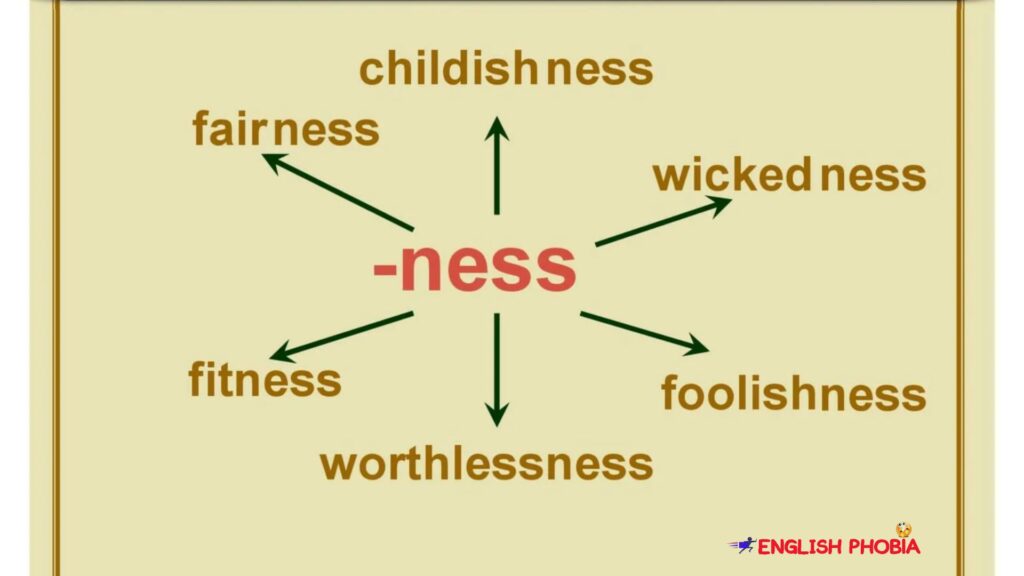
Suffixes are small parts that we add to the end of words to change their meaning or create new words. They are like special puzzle pieces that we can attach to the end of a word to make it different.
For example,
“Play.” If we want to talk about someone who plays a lot, we can add the suffix “-er” to “play” to create the word “player.” So, “player” means someone who plays.
Suffixes have the power to change verb tense.
For example,
If we take the word “jump” and add the suffix “-ed,” we get “jumped.”
Suffixes can transform words and give them new meanings. It is like adding a special ending to a word to make it more specific or describe something different.
What are 10 suffixes examples?
Here are 10 suffixes examples along with their meanings:
English Vocabulary Root Words
1) -Ing
Meaning: Indicates continuous action or present participle form of a verb.
For example,
Running, reading, singing.
2) -Ful
Meaning: Indicates full of, characterized by.
For example,
Joyful, playful, careful.
3) -Ed
Meaning: Indicates past tense of regular verbs.
For example,
Walked, talked, danced.
4) -Ly
Meaning: Indicates manner or quality.
For example,
Quickly, happily, slowly.
5) -Ness
Meaning: Indicates a state or condition of being.
For example,
Happiness, kindness, darkness.
6) -Tion
Meaning: Indicates a state or process.
For example,
Celebration, preservation, observation.
7) -Ment
Meaning: Indicates a state or condition.
For example,
Agreement, excitement, development.
8) -Less
Meaning: Indicates without or lacking.
For example,
Fearless, careless, hopeless.
9) -Able / -Ible
Meaning: Indicates capable of or susceptible to.
For example,
Flexible, visible, readable.
10) -er / -or
Meaning: Indicates a person who performs a specific action or holds a certain position.
For example,
Teacher, actor, writer.
These suffixes are commonly used in English to modify and extend the meaning of words.
Conclusion
The key to learn English roots for competitive exams is an easy approach to succeed. When you understand root words, you can learn and remember new words easily. The root word method is a way to understand the meaning of words by looking at their roots or base forms. This method can help you understand the meanings of unknown words.
By learning and practicing more words, you can easily command the vocab section in any competitive exams.







